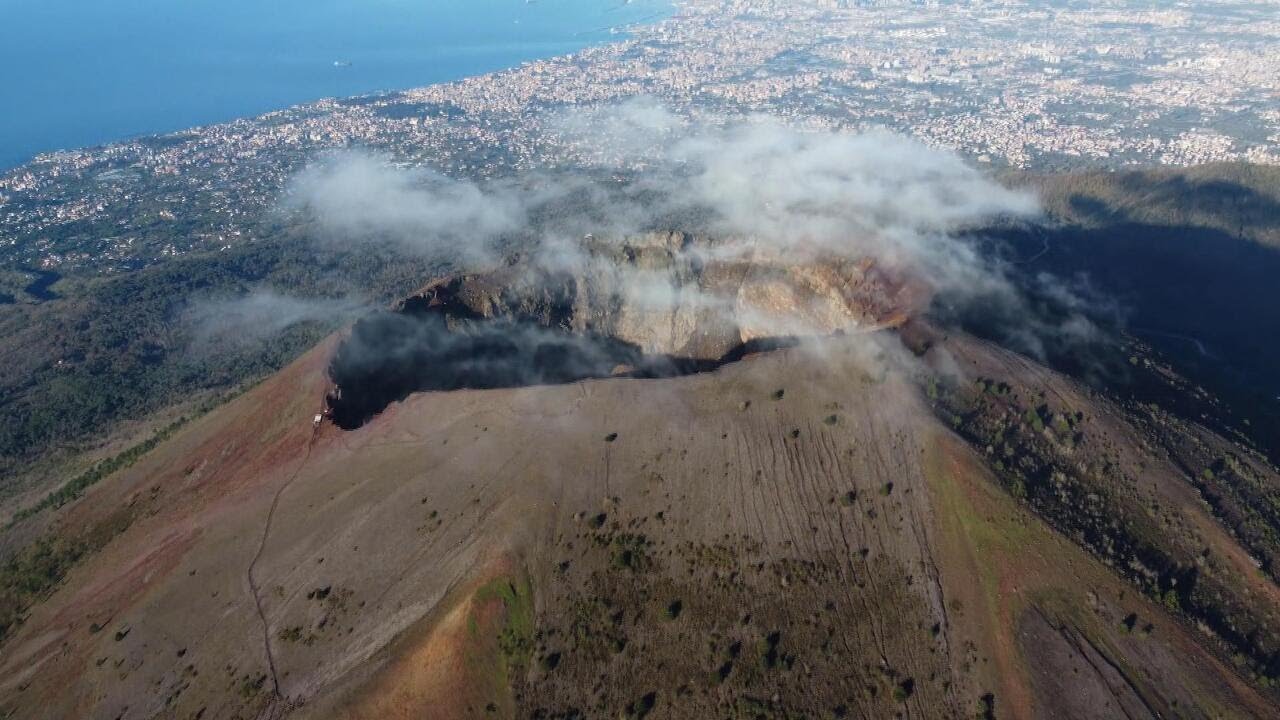AI technology, combined with advanced X-ray scanning, is enabling researchers to virtually unwrap and read fragile, carbonized papyrus scrolls from Mount Vesuvius’ eruption in 79 AD without damaging them. Through a global competition called the Vesuvius Challenge, AI has successfully deciphered ancient philosophical texts, opening new possibilities for uncovering lost knowledge from the Roman era.
The video explores how artificial intelligence (AI) is playing a crucial role in solving an ancient mystery related to Mount Vesuvius and the Roman Empire. When Mount Vesuvius erupted in 79 AD, it destroyed towns like Pompeii and Herculaneum, but also preserved them under layers of volcanic ash. Among the preserved artifacts were around 1,800 carbonized papyrus scrolls discovered in the 18th century in a villa library in Herculaneum. These scrolls, the only intact ancient library known, had been rendered unreadable due to their fragile, burnt state.
For centuries, attempts to unroll and read these scrolls physically resulted in their destruction, leading to many being discarded or lost. However, modern technology has offered a new approach. Scientists at the National Library of Naples, using a particle accelerator in England, generated extremely bright X-ray-like light to scan the scrolls non-invasively. AI was then employed to detect the faint traces of ink within the carbonized material, allowing researchers to virtually “unwrap” the scrolls without damaging them.
To accelerate progress, Professor Brent Seals from the University of Kentucky initiated the Vesuvius Challenge, a global competition with a $700,000 prize pool. This challenge invited participants to develop AI methods to decipher the scrolls. Remarkably, three college students succeeded in extracting words from a virtually unwrapped scroll, revealing philosophical reflections by Philodemus, an ancient thinker. This breakthrough marks the first time readable text has been recovered from these fragile artifacts using AI.
The project is ongoing, with a second phase of the competition underway to refine AI techniques and unlock more of the scrolls’ contents. Archaeologists believe that many more scrolls and artifacts remain buried in the villa, promising further discoveries. The use of AI in this context is seen as revolutionary, offering a way to peer into the past and recover lost knowledge without physically disturbing the delicate materials.
Overall, the video highlights the remarkable intersection of ancient history and cutting-edge technology. AI is not only helping to preserve and understand the past but also inspiring hope in the younger generation of researchers and students. The rediscovery of these ancient texts could spark a new Renaissance of knowledge, connecting us more deeply with human history and philosophy from over two millennia ago.
